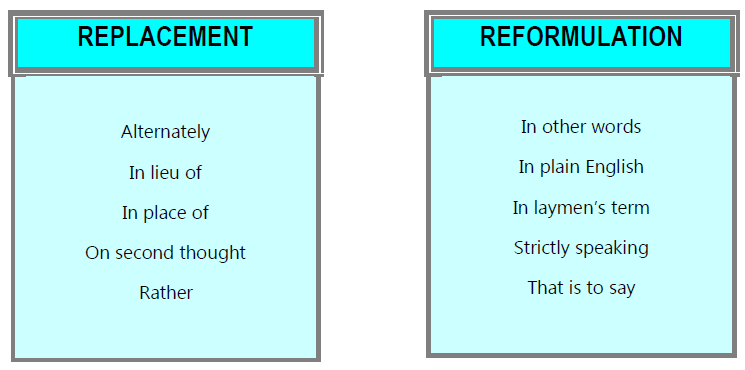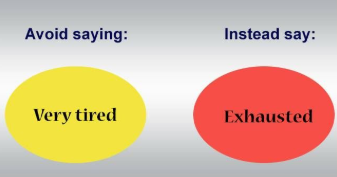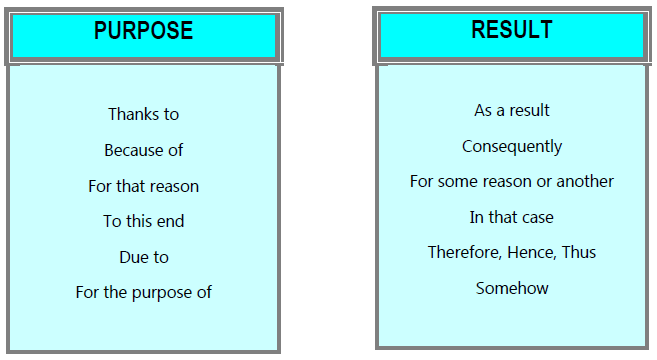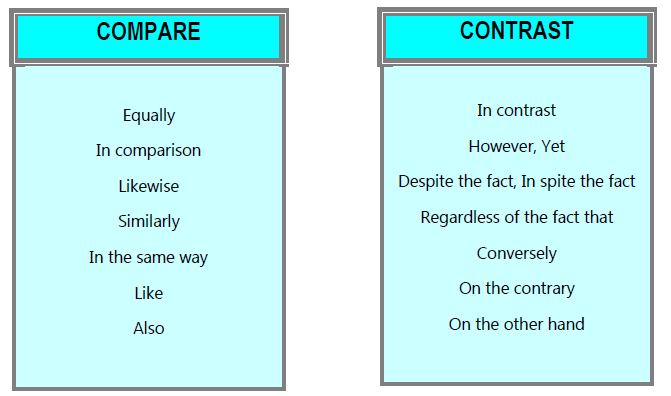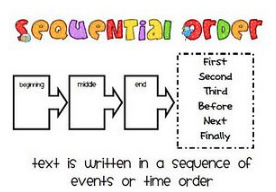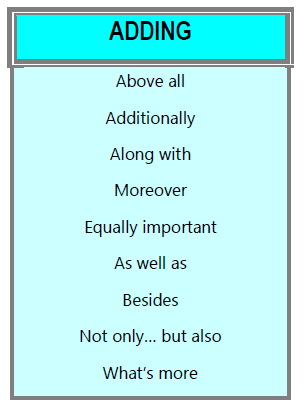IELTS スピーキング バンドスコア 7+対策法 ディスコースマーカー 6 例示EXAMPLE, 推定 INFERENTIAL

IELTS スピーキングの採点基準「Fluency and coherence : 流暢さと首尾一貫性」で
高い評価を得るために、ディスコース・マーカー(繋ぎ語)を適切に使って
話に一貫性があることをアピールすることが必要です。
ディスコースマーカーというのは、「論理マーカー」とか「シグナルワード」とか、
いろいろと言い方はありますが、簡単に言うと、接続詞、接続副詞や
前置詞句のことです。
ディスコースマーカーを的確に使うことで、話しを論理的に展開することができます。
今回は、「例示」「推定」の機能を持つディスコ―スマーカーを練習していきましょう。
試験で使える!ディスコースマーカー機能表現
▮ディスコースマーカー 機能表現
「例示」 EXAMPLE / 推定 INFERENTIAL
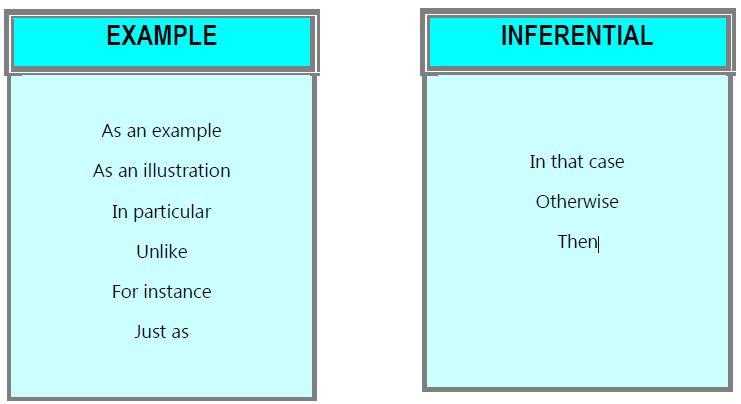
ディスコ―スマーカーを使った試験で使える文章
● Sample 1:
He said his case as an example of how to lead a team
● Sample 2:
She had to add sugar to her dish then so that it’d taste better.
「例示」の ディスコースマーカー

for example(例えば)
e.g.(例えば)
for instance(例えば)
(let’s) suppose(仮に~だとしよう、例えば)
(let’s) say(言ってみれば、例えば)
including ~(~を含めて、~など)
such as ~(~のような、~といった)
like ~(~のような、~といった)
:(コロン)(~のような、~といった)
take ~ as an example [illustration](例として~を取り上げる)
needless to say ~(~は言うまでもななく)
not to mention ~(~は言うまでもななく)
to say nothing of ~(~は言うまでもななく)
let alone ~(~は言うまでもななく)
in particular ~(特に~、とりわけ~)
especially ~(特に~、とりわけ~)
「推定」のディスコースマーカー

In that case : もしそうなら、万一そんなことがあれば
Otherwise : 別な方法で(は)、ほかの状態に、さもなければ、その他の点で
Then : その後で、また今度は、次には、そのうえ、さらにまた
Drill ドリル
赤色で示した一般的なディスコースマーカーを変えて、文章のパターン又は文章スタイルを変更してください。(ただし、主張するアイディアは変えてはいけません)
1. In the music industry, for instance, many musicians were reported to have taken drugs and get caught. 2. Take the coffee out my office, otherwise I’ll drink it up again. 3. I have to be there by 7 am or else I’ll miss the train. 4. The situation is the plantation in particular is alarming. 5. A: I’m on this leave this Friday. B: In that case, let’s have dinner at my place. What you think?






